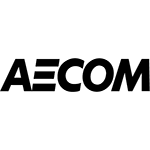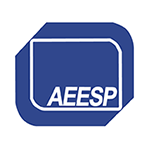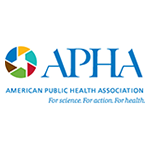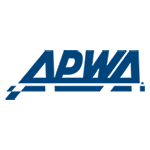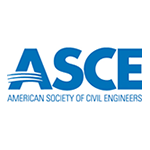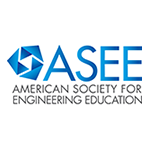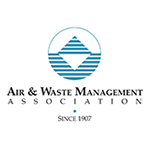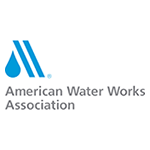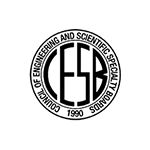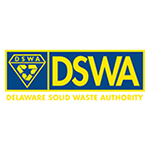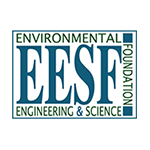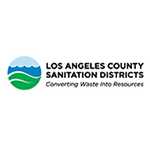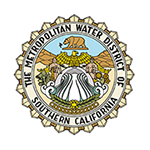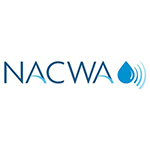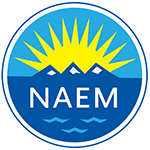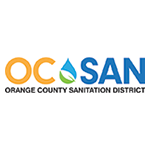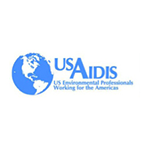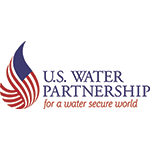- Home
- Contact Us
- AAEES Staff
- AAEES Board of Trustees
- American Academy of Environmental Engineers Certification Board
- American Academy of Environmental Scientists Certification Board
- AAEES Committees
- State and Regional Representatives
- Representatives to Other Organizations
- Previous Leadership
- Interactive Who's Who
- Student Chapters
- Tau Chi Alpha
- News & Events
- Awards
- AAEES Awards Criteria
- 40 Under 40 Recognition Program
- Edward J.Cleary Award
- Excellence in Environmental Engineering and Science Education
- Gordon Maskew Fair Award
- Honorary Member
- International Honorary Member
- Ralph and Joe Bales Graber Science Award
- Stanley E. Kappe Award
- Environmental Communications Awards Competition
- Excellence in Environmental Engineering and Science Competition
- The AAEES Chapter Blue Marble Award
- Resources
- Membership
- Donate
- Jobs
2023 Autumn SummitAAEES Summit on Community Engagement: Environmental Engineering and Science in a Community Context
|
|
Start time |
Duration |
Description |
|
12pm, Eastern |
5 min |
Daniel Oerther, BCEE, BCES, Executive Director, American Academy of Environmental Engineers and Scientists (AAEES), Event Welcome |
|
12:05pm |
5 min |
Lisa Woodward, P.E., BCEE, Society of Women Engineers (SWE), Moderator for Keynote 1: Session Welcome and Speaker Introduction |
|
12:10pm |
15 min |
Natasha DeJarnett, Ph.D., MPH, BCES, Deputy Director for Environmental Justice Data and Evaluation, Council on Environmental Quality, Executive Office of the President, Keynote: "Climate and Economic Justice Screening Tool" |
|
12:25pm |
5 min |
Moderated Q/A |
|
12:30pm |
5 min |
Daniel Oerther, BCEE, BCES, Executive Director, American Academy of Environmental Engineers and Scientists (AAEES), Moderator for Panel 1: Session Welcome and Panelist Introduction |
|
12:35pm |
5 min |
Lupita Montoya, Ph.D., US Fulbright-Garcia Robles Scholar 2022-2023 |
|
12:40pm |
5 min |
Jose Manuel Cerrato, Ph.D., Professor and Regents’ Lecturer, University of New Mexico |
|
12:45pm |
5 min |
Justin Hutchison, Ph.D., Earnest C. Pogge Chair’s Council Assistant Professor, The University of Kansas |
|
12:50pm |
10 min |
Moderated Q/A |
|
1:00pm |
30 min |
Poster Session Olushola Abiodun, University of New Haven, Connecticut M Qasim Ali, Texas Tech University Mohammed Braimah, Kent State University Gergino Chounna Y., University of Padova Abel Egbemhenghe, Texas Tech University Hadi Erfani, Islamic Azad University Yoel Gebrai, University of South Florida Mastura Morshed Nawmi, Islamic University of Technology, Bangladesh Chika Okorie, Texas Tech University |
|
1:30pm |
5 min |
Fernando Hinojosa, M.Ed., Director, Research & Impact, Society of Hispanic Professional Engineers (SHPE), Moderator for Keynote 2: Session Welcome and Speaker Introduction |
|
1:35pm |
15 min |
Boris Martin, Ph.D., CEO, Engineers Without Borders – USA, President, EWB – International, Keynote: "Serving all communities is our shared responsibility”. |
|
1:50pm |
10 min |
Moderated Q/A |
|
2:00pm |
5 min |
Daniel Oerther, BCEE, BCES, Executive Director, American Academy of Environmental Engineers and Scientists (AAEES), Session Welcome and Panel 2 Introduction |
|
2:05pm |
5 min |
Wendy A. Wert, P.E., BCEE, AAEES President-Elect and Environmental Engineer, Los Angeles County Sanitation Districts (LACSD) |
|
2:10pm |
5 min |
Michael Parkowski, Chief of Business and Governmental Services, Delaware Solid Waste Authority (DSWA) |
|
2:20pm |
10 min |
Moderated Q/A |
|
2:30pm |
5 min |
Usha Rao, Ph.D., Professor of Chemistry, Saint Joseph’s University, Association of Women in Science (AWIS), Moderator for Keynote 3: Session Welcome and Speaker Introduction |
|
2:35pm |
15 min |
Sherry Bradley, MPH, BCES, Executive Director, Black Belt Unincorporated Wastewater Program, Keynote: “Building Wastewater Infrastructure that will Last Because People Matter” |
|
2:50pm |
5 min |
Moderated Q/A |
|
2:55pm |
5 min |
Daniel Oerther, BCEE, BCES, Executive Director, American Academy of Environmental Engineers and Scientists (AAEES), Audience Thanks |
Supporting biographical information (subject to change)
Daniel Oerther, P.E., BCEE, BCES, Executive Director, American Academy of Environmental Engineers and Scientists (AAEES).
 Daniel B. Oerther (pronounced O’ thur) is a professor of environmental health engineering at the Missouri University of Science and Technology and the executive director of the American Academy of Environmental Engineers and Scientists. Dan is a serial humanipreneur, developing triple-bottom-line platforms to eradicate the effects of extreme poverty. One recent example is COAST - the Caribbean Ocean and Aquaculture Sustainability faciliTy. COAST is the world’s first-ever parametric insurance product protecting the food security and livelihoods of artisanal and small-scale fisherfolk and their families. Dan pioneered the concept of the Nurse+Engineer as a prototype V-shaped professional. V-shaped professionals use convergence research in a community context to solve the wicked problems of sustainable development. Examples of Dan’s collaborations include supporting mothers and their children during the first 1,000 days of life, preventing childhood stunting among those under five years of age, and ensuring access to clean water and sanitation in homes, schools, and healthcare clinics. Professor Oerther holds an earned PhD in Environmental Engineering from the University of Illinois. He is a licensed Professional Engineer, and he is Board Certified in Environmental Engineering and in Environmental Science.
Daniel B. Oerther (pronounced O’ thur) is a professor of environmental health engineering at the Missouri University of Science and Technology and the executive director of the American Academy of Environmental Engineers and Scientists. Dan is a serial humanipreneur, developing triple-bottom-line platforms to eradicate the effects of extreme poverty. One recent example is COAST - the Caribbean Ocean and Aquaculture Sustainability faciliTy. COAST is the world’s first-ever parametric insurance product protecting the food security and livelihoods of artisanal and small-scale fisherfolk and their families. Dan pioneered the concept of the Nurse+Engineer as a prototype V-shaped professional. V-shaped professionals use convergence research in a community context to solve the wicked problems of sustainable development. Examples of Dan’s collaborations include supporting mothers and their children during the first 1,000 days of life, preventing childhood stunting among those under five years of age, and ensuring access to clean water and sanitation in homes, schools, and healthcare clinics. Professor Oerther holds an earned PhD in Environmental Engineering from the University of Illinois. He is a licensed Professional Engineer, and he is Board Certified in Environmental Engineering and in Environmental Science.
Founded in 1955, the American Academy of Environmental Engineers and Scientists (AAEES) is a not-for-profit 501(c)(6) organization serving the Environmental Engineering and Environmental Science professions by providing Board Certification to those who qualify through experience and testing. The Academy also provides training through workshops and seminars, participates in accrediting universities, publishes a periodical and other reference material, interacts with students and young professionals, sponsors a university lecture series, and rewards outstanding achievements through its international awards program.
Lisa Woodward, P.E., BCEE, Society of Women Engineers (SWE)
 As a graduate of the Colorado School of Mines with a degree in Chemical Engineering, Lisa Woodward worked for the State of Colorado during the early stages of environmental regulation, where she not only had the challenge of learning and working in an emerging area of environmental engineering but also had the challenge of being a woman as well. Lisa worked in the Hazardous Waste Division of the Colorado Department of Public Health and Environment which dealt with a wide variety of waste issues. She started in the leaking underground tanks division where she helped set the standards for clean-up and wrote the state’s first Clean Up Guidance Manuel for Under Ground Storage Tanks. Lisa set the standard for being a caring and competent regulator; she cared both about cleaning up the environment as well as supporting the people and the companies that owned contaminated sites – helping them to keep costs under control while achieving clean-up standards. Subsequently, Lisa became a permit writer for the Rocky Flats Nuclear Facility. She was one of the first permit writers at the facility, and her ability both to manage technical issues as well as to talk with a care for workers and the public were great assets. She held public meetings in a manner that helped the public to get their minds around some of the most complex nuclear waste issues. When Lisa retired, she began working at her alma mater, the Colorado School of Mines, as an adjunct instructor for the senior design class. In addition to teaching, Lisa mentors young women each fall at the SWE's Women in Engineering conference career fair. She helps them with their resume, their elevator pitch and with making a strategic plan for the career fair. This activity has helped several young women get a great internship or their first job outside of college. Lisa loves teaching at Mines where she helps the next generation of engineers launch their careers.
As a graduate of the Colorado School of Mines with a degree in Chemical Engineering, Lisa Woodward worked for the State of Colorado during the early stages of environmental regulation, where she not only had the challenge of learning and working in an emerging area of environmental engineering but also had the challenge of being a woman as well. Lisa worked in the Hazardous Waste Division of the Colorado Department of Public Health and Environment which dealt with a wide variety of waste issues. She started in the leaking underground tanks division where she helped set the standards for clean-up and wrote the state’s first Clean Up Guidance Manuel for Under Ground Storage Tanks. Lisa set the standard for being a caring and competent regulator; she cared both about cleaning up the environment as well as supporting the people and the companies that owned contaminated sites – helping them to keep costs under control while achieving clean-up standards. Subsequently, Lisa became a permit writer for the Rocky Flats Nuclear Facility. She was one of the first permit writers at the facility, and her ability both to manage technical issues as well as to talk with a care for workers and the public were great assets. She held public meetings in a manner that helped the public to get their minds around some of the most complex nuclear waste issues. When Lisa retired, she began working at her alma mater, the Colorado School of Mines, as an adjunct instructor for the senior design class. In addition to teaching, Lisa mentors young women each fall at the SWE's Women in Engineering conference career fair. She helps them with their resume, their elevator pitch and with making a strategic plan for the career fair. This activity has helped several young women get a great internship or their first job outside of college. Lisa loves teaching at Mines where she helps the next generation of engineers launch their careers.
Founded in 1955, the Society of Women Engineers (SWE) is the world's largest advocate and catalyst for change for women in engineering and technology. For more than seven decades, SWE has given women engineers a unique place and voice within the engineering industry. SWE is centered around a passion for our members’ success and continues to evolve with the challenges and opportunities reflected in today’s exciting engineering and technology specialties.
Natasha DeJarnett, Ph.D., MPH, BCES, Deputy Director for Environmental Justice Data and Evaluation, Council on Environmental Quality, Executive Office of the President, Keynote: “Climate and Economic Justice Screening Tool”
 Dr. Natasha DeJarnett (she/her) is an assistant professor in the EnviroMe Institute at the University of Louisville Division of Environmental Medicine. Dr. DeJarnett is a graduate of the University of Louisville, where she completed her PhD and Masters of Public Health, both concentrating in environmental health sciences. In her postdoctoral studies, Dr. DeJarnett was awarded a fellowship by the National Institute of Environmental Health Sciences to investigate cardiovascular risks of air pollution exposures. In 2015, she became the recipient of the prestigious Impact Award from the Society of Toxicology’s Cardiovascular Toxicology Specialty Section for her 2014 paper “Acrolein Exposure is Associated with Increased Cardiovascular Disease Risk.” Dr. DeJarnett was named 2017 Alumna of the Year for the University of Louisville School of Public Health and Information Sciences and concurrently awarded designation in the class of 2017 Alumni Fellows. Prior to becoming an assistant professor, Dr. DeJarnett was interim associate director of Program and Partnership Development at the National Environmental Health Association, leading the areas of research, climate and health, and children’s environmental health. She was a policy analyst at the American Public Health Association, where she led the Natural Environment portfolio, including air and water exposures along with climate change. Dr. DeJarnett is a member of the EPA’s Children’s Health Protection Advisory Committee, the Governing Board of Citizens’ Climate Education, the Board of Directors for Physicians for Social Responsibility, and the Steering Committee of the International Transformational Resilience Coalition.
Dr. Natasha DeJarnett (she/her) is an assistant professor in the EnviroMe Institute at the University of Louisville Division of Environmental Medicine. Dr. DeJarnett is a graduate of the University of Louisville, where she completed her PhD and Masters of Public Health, both concentrating in environmental health sciences. In her postdoctoral studies, Dr. DeJarnett was awarded a fellowship by the National Institute of Environmental Health Sciences to investigate cardiovascular risks of air pollution exposures. In 2015, she became the recipient of the prestigious Impact Award from the Society of Toxicology’s Cardiovascular Toxicology Specialty Section for her 2014 paper “Acrolein Exposure is Associated with Increased Cardiovascular Disease Risk.” Dr. DeJarnett was named 2017 Alumna of the Year for the University of Louisville School of Public Health and Information Sciences and concurrently awarded designation in the class of 2017 Alumni Fellows. Prior to becoming an assistant professor, Dr. DeJarnett was interim associate director of Program and Partnership Development at the National Environmental Health Association, leading the areas of research, climate and health, and children’s environmental health. She was a policy analyst at the American Public Health Association, where she led the Natural Environment portfolio, including air and water exposures along with climate change. Dr. DeJarnett is a member of the EPA’s Children’s Health Protection Advisory Committee, the Governing Board of Citizens’ Climate Education, the Board of Directors for Physicians for Social Responsibility, and the Steering Committee of the International Transformational Resilience Coalition.
Created in 1969 by the National Environmental Policy Act (NEPA), the Council on Environmental Quality (CEQ), within the Executive Office of the President (of the United States of America), coordinates the federal government’s efforts to improve, preserve, and protect America’s public health and environment. CEQ advises the President and develops policies on climate change, environmental justice, federal sustainability, public lands, oceans, and wildlife conservation, among other areas. As the agency responsible for implementing NEPA, CEQ also works to ensure that environmental reviews for infrastructure projects and federal actions are thorough, efficient, and reflect the input of the public and local communities.
Lupita Montoya, Ph.D., US Fulbright-Garcia Robles Scholar 2022-2023
 Dr. Lupita Montoya’s primary area of research is the study of indoor air quality and the health effects of air pollutants. She is especially interested in elucidating the role that biological and physico-chemical characteristics of various aerosols (e.g., biomass emissions, allergens, nanoparticles) or toxic gases (e.g., formaldehyde) play in the development of disease and toxicity. Her research team also works on the development of instrumentation and techniques to measure, model, and control common airborne pollutants in indoor environments and to assess human exposure to these agents. Another research area in Dr. Montoya's laboratory is sustainable indoor air quality control systems, focusing on appropriate technologies for developing communities and “smart' systems for developed countries. Such research includes improvement of indoor air quality using active flow control, green materials and phytoremediation systems as methods to decrease the energy burden of HVAC systems. Lupita holds an earned doctorate in civil and environmental engineering from Stanford University and completed post-doctoral training at the School of Public Health, Environmental Health and Toxicology at the State University of New York in Albany as well as the Harvard School of Public Health.
Dr. Lupita Montoya’s primary area of research is the study of indoor air quality and the health effects of air pollutants. She is especially interested in elucidating the role that biological and physico-chemical characteristics of various aerosols (e.g., biomass emissions, allergens, nanoparticles) or toxic gases (e.g., formaldehyde) play in the development of disease and toxicity. Her research team also works on the development of instrumentation and techniques to measure, model, and control common airborne pollutants in indoor environments and to assess human exposure to these agents. Another research area in Dr. Montoya's laboratory is sustainable indoor air quality control systems, focusing on appropriate technologies for developing communities and “smart' systems for developed countries. Such research includes improvement of indoor air quality using active flow control, green materials and phytoremediation systems as methods to decrease the energy burden of HVAC systems. Lupita holds an earned doctorate in civil and environmental engineering from Stanford University and completed post-doctoral training at the School of Public Health, Environmental Health and Toxicology at the State University of New York in Albany as well as the Harvard School of Public Health.
Jose Manuel Cerrato, Ph.D., Professor and Regents’ Lecturer, University of New Mexico
 Dr. Cerrato’s research interest is related to biogeochemical processes at the interface of water and energy that affect the cycle of metals and radionuclides in the environment. He leads the E-H2O Research Group which applies spectroscopy, microscopy, aqueous chemistry, and molecular biology tools for the study of complex environmental interactions. Dr. Cerrato was a Postdoctoral Research Associate at Washington University in St. Louis. He has been a recipient of the OAS-LASPAU-Fulbright Scholarship, National Science Foundation (NSF) Integrative Graduate Education Research Traineeship (IGERT), Oak Ridge Associated Universities Ralph E. Powe Junior Faculty Enhancement Award, the University of New Mexico Faculty of Color Research Award, and the NSF CAREER Award. Jose Manual holds an earned doctorate in civil engineering from Virginia Tech and completed post-doctoral training in the Department of Energy, Environmental, and Chemical Engineering at the Washington University in St. Louis.
Dr. Cerrato’s research interest is related to biogeochemical processes at the interface of water and energy that affect the cycle of metals and radionuclides in the environment. He leads the E-H2O Research Group which applies spectroscopy, microscopy, aqueous chemistry, and molecular biology tools for the study of complex environmental interactions. Dr. Cerrato was a Postdoctoral Research Associate at Washington University in St. Louis. He has been a recipient of the OAS-LASPAU-Fulbright Scholarship, National Science Foundation (NSF) Integrative Graduate Education Research Traineeship (IGERT), Oak Ridge Associated Universities Ralph E. Powe Junior Faculty Enhancement Award, the University of New Mexico Faculty of Color Research Award, and the NSF CAREER Award. Jose Manual holds an earned doctorate in civil engineering from Virginia Tech and completed post-doctoral training in the Department of Energy, Environmental, and Chemical Engineering at the Washington University in St. Louis.
Justin Hutchison, Ph.D., Earnest C. Pogge Chair’s Council Assistant Professor, The University of Kansas
 Dr. Hutchison leads a research group at the University of Kansas that specializes in protein and enzymatic (biocatalytic) applications to treat drinking water. The team advances biocatalytic technologies by iteratively evaluating research development pathways. The end goal is to offer alternative catalytic processes that promote the use of earth-abundant metals and to bioinspire the next generation of chemical catalysts. Justin also works to address drinking water treatment barriers in rural water districts and is a theme leader (drinking water treatment and distribution) on the NSF Adaptive and Resilient Infrastructure driven by Social Equity (ARISE) project. Justin is a recipient of the AWWA LARS Research Award, ARCS Foundation Scholar Award, the University of Kansas Miller Scholar Award, and an NSF CAREER Award. Justin holds an earned doctorate in environmental engineering from the University of Illinois, Urbana-Champaign.
Dr. Hutchison leads a research group at the University of Kansas that specializes in protein and enzymatic (biocatalytic) applications to treat drinking water. The team advances biocatalytic technologies by iteratively evaluating research development pathways. The end goal is to offer alternative catalytic processes that promote the use of earth-abundant metals and to bioinspire the next generation of chemical catalysts. Justin also works to address drinking water treatment barriers in rural water districts and is a theme leader (drinking water treatment and distribution) on the NSF Adaptive and Resilient Infrastructure driven by Social Equity (ARISE) project. Justin is a recipient of the AWWA LARS Research Award, ARCS Foundation Scholar Award, the University of Kansas Miller Scholar Award, and an NSF CAREER Award. Justin holds an earned doctorate in environmental engineering from the University of Illinois, Urbana-Champaign.
Virtual Poster Session









Fernando Hinojosa, M.Ed., Director, Research & Impact, Society of Hispanic Professional Engineers (SHPE)
 Fernando Hinojosa is the Director of Precollege Programs and Parent Outreach at SHPE (Society of Hispanic Professional Engineers), based in the vibrant city of Houston, TX. With a strong educational background, Fernando earned his Bachelor's degree in Mechanical Engineering from The University of Texas at Tyler, setting the stage for his exceptional problem-solving abilities. Expanding his horizons, he pursued a Master's in Administration from Lamar University, adding valuable leadership skills to his repertoire.
Fernando Hinojosa is the Director of Precollege Programs and Parent Outreach at SHPE (Society of Hispanic Professional Engineers), based in the vibrant city of Houston, TX. With a strong educational background, Fernando earned his Bachelor's degree in Mechanical Engineering from The University of Texas at Tyler, setting the stage for his exceptional problem-solving abilities. Expanding his horizons, he pursued a Master's in Administration from Lamar University, adding valuable leadership skills to his repertoire.
Founded in 1974, the Society of Hispanic Professional Engineers (SHPE) is the nation’s largest association dedicated to fostering Hispanic leadership in the STEM (science, technology, engineering, and math) field. SHPE meets each student and professional member where they are—offering effective training, mentorship, and programming for a vibrant community. SHPE changes lives by empowering the Hispanic community to realize its fullest potential and to impact the world through STEM awareness, access, support, and development. SHPE’s vision is a world where Hispanics are highly valued and influential as the leading innovators, scientists, mathematicians, and engineers.
Boris Martin, Ph.D., CEO, Engineers Without Borders – USA, President, EWB – International, Keynote: "Serving all communities is our shared responsibility"
 Dr. Boris Martin has been involved with Engineers Without Borders fore nearly 20 years. He has worked in Burkina Faso, Canada, France, Ghana, Kenya, Malawi, Uganda and Zambia supporting entrepreneurs who are determined to improve their own communities. As President of EWB-I, Boris is more hopeful than ever for the collective potential of the EWB movement to be realized. Boris joined EWB-USA as Executive Director in 2022. He came from EWB-Canada, where he started as Vice President of Strategy and Investment in 2011 and managed the organization as CEO from 2014 until he joined EWB-USA. Boris holds an earned doctorate in materials science and engineering from McMaster University.
Dr. Boris Martin has been involved with Engineers Without Borders fore nearly 20 years. He has worked in Burkina Faso, Canada, France, Ghana, Kenya, Malawi, Uganda and Zambia supporting entrepreneurs who are determined to improve their own communities. As President of EWB-I, Boris is more hopeful than ever for the collective potential of the EWB movement to be realized. Boris joined EWB-USA as Executive Director in 2022. He came from EWB-Canada, where he started as Vice President of Strategy and Investment in 2011 and managed the organization as CEO from 2014 until he joined EWB-USA. Boris holds an earned doctorate in materials science and engineering from McMaster University.
Founded in 2007, Engineers Without Borders – USA builds a better world through engineering projects that empower communities to meet their basic human needs. EWB-USA represents the United States within the larger international movement of Engineers Without Borders. In its 20 years of operation, EWB-USA partners with communities and develops leaders to build a better world. This includes more than 400 students chapters working in approximately 40 countries to deliver on nearly 500 ongoing projects.
Wendy A. Wert, P.E., BCEE, AAEES President-Elect and Environmental Engineer, Los Angeles County Sanitation Districts (LACSD)

Wendy is a Board Certified Environmental Engineer with the Los Angeles County Sanitation Districts. For the past 21 years, she has been working on programs that rely on public participation to integrate water supply, water reuse wastewater facilities planning. She received a B.S in environmental engineering and an M.S. in water resources engineering from the University of Central Florida (UCF). Her studies gave her opportunities to collaborate with others. It was during this time that Wendy developed an interest in effectively communicating math and science to diverse groups. Today, she uses her position as an engineer to support outreach and education programs that explain how the work of the Sanitation Districts identifies community needs then applies engineering and scientific principles to meet them.
Wendy is an award-winning transformative leader anchored in integration, innovation, and inclusion.
Wendy’s journey started on a farm in Pennsylvania. Her father was a Navy veteran, and her mother is a retired school teacher. Wendy’s mentor Debra Reinhart, Ph.D., P.E., BCEE, encouraged her to join the Academy. Wendy joined in 1997 and discovered a network of peers to help meet the challenges of our field. Family and mentors continue to inspire her career.
Michael Parkowski, Chief of Business and Governmental Services, Delaware Solid Waste Authority (DSWA)

https://www.linkedin.com/in/michael-parkowski-00233577/
Usha Rao, Ph.D., Professor of Chemistry, Saint Joseph’s University, Association of Women in Science (AWIS)
 Usha Rao is a researcher, speaker, and consultant. She is a recipient of the Association for Women in Science’s Zenith award, a lifetime achievement award. She has also received the Christian R. and Mary F. Lindback Medal for Distinguished Teaching; the Distinguished Research Lectureship from the Association for Women Geoscientists; and the Elizabeth Bingham Mentoring Award from the Philadelphia chapter of AWIS, awarded to a “distinguished scientist who has significantly influenced the advancement of women in science”.
Usha Rao is a researcher, speaker, and consultant. She is a recipient of the Association for Women in Science’s Zenith award, a lifetime achievement award. She has also received the Christian R. and Mary F. Lindback Medal for Distinguished Teaching; the Distinguished Research Lectureship from the Association for Women Geoscientists; and the Elizabeth Bingham Mentoring Award from the Philadelphia chapter of AWIS, awarded to a “distinguished scientist who has significantly influenced the advancement of women in science”.
Dr. Rao was selected by Pennsylvania Governor Wolf to participate in the “PA Women in STEM” video series. She serves as a writer and keynote speaker on leadership and mentoring for the science magazine Lab Manager, most recently serving as a contributing author of an issue that won a Tabbie Gold award for journalism. She has also won three merit awards for "exceptional achievement in teaching" at Saint Joseph's University where she is a Professor of Chemistry and Biochemistry, and was selected as a Most Valuable Professor (MVP) by the women's basketball team. At Saint Joseph's, Dr. Rao co-developed the John P. McNulty Program for Leadership in Science and Mathematics, an initiative that has supported over 110 gifted women since 2009. She also established the University’s faculty development office to provide resources and mentoring to all faculty members, serving as Founding Director.
Dr. Rao’s research focuses on water pollution and sustainability. She holds a PhD in geochemistry from the University of Rochester and was an Environmental Research Council postdoctoral fellow in civil and environmental engineering and the geological sciences at Northwestern University. Dr. Rao is a coordinating editor for the Springer-Nature journal, Environmental Geochemistry and Health. She serves as an Approved Expert Reviewer for the Nobel-prize winning United Nations’ Intergovernmental Panel on Climate Change (UN IPCC) and as a mentor for Vice President Gore’s Climate Reality initiative.
Dr. Rao’s board service includes the Ardmore Library of the Lower Merion Library System and the Frances M. Maguire Art Museum at the Barnes Foundation. She is also active in pediatric cancer fundraising in honor of her daughter Nina.
Founded in 1971, the Association of Women Scientists (AWIS) is a global network that inspires bold leadership, research, and solutions that advance women in STEM (science, technology, engineering, and math), spark innovation, and promote organizational success. AWIS is dedicated to drive excellence in STEM by achieving equity and full participation of women in all disciplines and across all employment sectors.
Sherry Bradley, MPH, BCES, Executive Director, Black Belt Unincorporated Wastewater Program, “Building Wastewater Infrastructure that will Last Because People Matter”
 Sherry Bradley holds a Master’s in Public Administration degree from Auburn University in Montgomery and is the former Director of the Bureau of Environmental Services with the Alabama Department of Public Health, where she served as a public servant for 45 years. The Bureau she directed was a regulatory one that regulates the permitting, installation, maintenance, use, and product & manual approval prior to products being used, of onsite sewage disposal treatment systems.
Sherry Bradley holds a Master’s in Public Administration degree from Auburn University in Montgomery and is the former Director of the Bureau of Environmental Services with the Alabama Department of Public Health, where she served as a public servant for 45 years. The Bureau she directed was a regulatory one that regulates the permitting, installation, maintenance, use, and product & manual approval prior to products being used, of onsite sewage disposal treatment systems.
For over 20 years, improper wastewater disposal in Lowndes County unincorporated areas has been highlighted in the news on an international level. Ms. Bradley has, for the past 5 years, worked and created the Black Belt Unincorporated Wastewater Program (BBUWP), a non-profit 501c3, and the infrastructure needed to support it. The BBUWP was created out of need, to help low-income families who cannot afford a wastewater disposal system obtain one. The BBUWP will be responsible for the installation of at least 175 wastewater treatment systems for single family dwellings without any proper wastewater disposal in Lowndes County, Alabama. The BBUWP model is one that can be duplicated by blackbelt officials if best practice STANDARDS that are currently being implemented are used. For the first time in Alabama, an innovative design was installed by BBUWP in Lowndes County called the Effluent Discharge System. The program has been implemented, taking away any excuse for not having an affordable ($20.00 per month) and sustainable onsite sewage disposal treatment system.
Ms. Bradley received the International Water, Sanitation and Hygiene Foundation Award for her voluntary work in Lowndes County, Alabama with the International Association of Plumbers & Mechanical Officials, September 2022; received the State Employee of the Year Award by State Personnel before retiring March 1, 2023; was a “This is Alabama Women who Shape the State 2023” Honoree, March 2023; and became Board Certified by The American Academy of Environmental Engineers and Scientists as an Environmental Scientist, April 2023.





